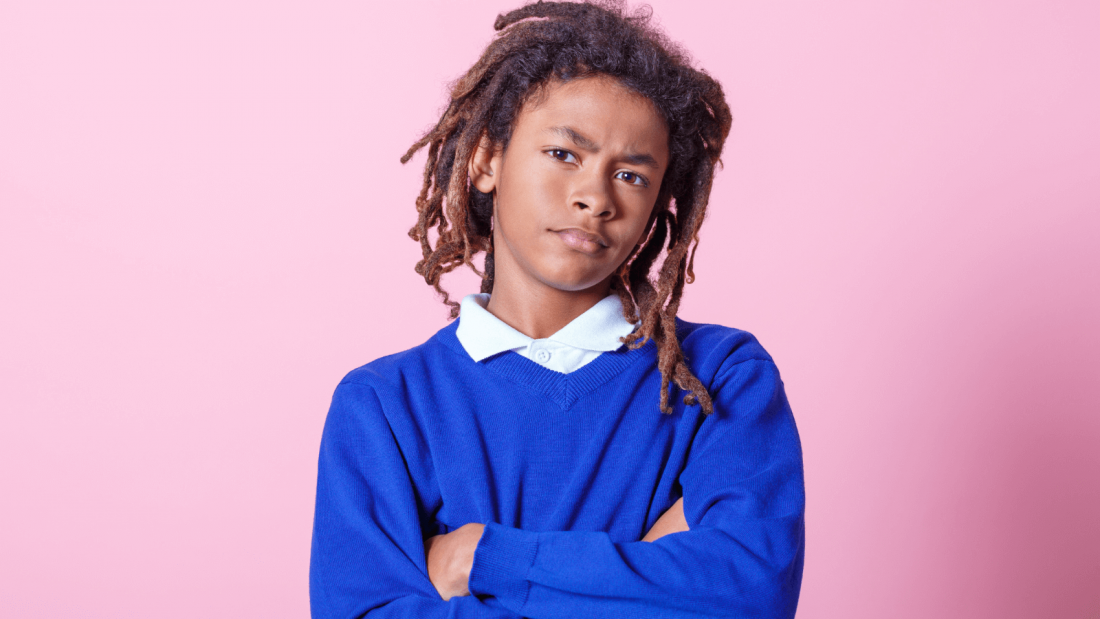Pupils should not have to face discriminatory practices by having their natural Afro hair styles policed while at school.

A range of new resources, developed by the Equality and Human Rights Commission (EHRC) and endorsed by World Afro Day and the All-Party Parliamentary Group for Race Equality in Education, aim to reduce the instances of hair discrimination. Court cases and research indicate that hair-based discrimination disproportionately affects girls and boys with Afro-textured hair or hairstyles.
Since 2018 the Equality Advisory and Support Service, which provides free advice to the public on equality law, has received 50 calls reporting potential cases of hair discrimination.
An example is the 2020 case of Ruby Williams vs Urswick School; a case successfully funded by the EHRC.
Ruby took her school to court after it enforced a uniform policy that ‘banned Afro hair of excessive volume’. Ruby, a mixed-race child who has naturally big, afro hair was repeatedly refused entry to her school. Even after EHRC got involved, the school still didn’t respond to the claim. The court subsequently issued a default judgment in her favour and the family reached a settlement.
“…a person must not be discriminated against because of their hair or hairstyle if it is associated with their race or ethnicity.”
EHRC secured a legally binding agreement with the school to ensure it ended the discriminatory policy and considered factors such as race and religion when determining what a ‘reasonable’ hairstyle was.
Another case which readers may be familiar with, as it garnered widespread media coverage at the time, was 12-year-old Chikayzea Flanders and Fulham Boys School. On his first day at the school in September 2017, Chikayzea Flanders was isolated from his classmates due to his hairstyle. The school didn’t consider the fact that Chikayzea’s dreadlocks were a fundamental tenet of his Rastafarian beliefs and therefore should be exempt from the policy.
Netflix’s Dọlápọ̀ Is Fine film shines spotlight on afro hair discrimination
The EHRC funded the case and Chikayzea Flanders and his mother eventually reached an agreement with Fulham Boys School, with both sides accepting that the school’s enforcement of its uniform policy and ban on dreadlocks resulted in indirect discrimination.
The newly developed resources are based on the fact that ‘Race’ is a protected characteristic under the 2010 Equality Act, which means a person must not be discriminated against because of their hair or hairstyle if it is associated with their race or ethnicity.

Any uniform and appearance policies that ban certain hairstyles, without the possibility for exceptions to be made on racial grounds, are likely to be unlawful. This includes natural Afro hairstyles, braids, cornrows, plaits and head coverings, amongst other styles.
School leaders, and indeed anyone in a position of authority, are being urged to remember that discrimination can range from describing someone’s hairstyle as inappropriate or exotic through to outright bans on certain hairstyles and bullying. Many of those affected say that their schools lack understanding about Afro hair and the care it needs.
The resources include:
- guidance on stopping hair discrimination, with practical examples for schools on when a policy may be discriminatory, based on real-life experiences.
- a decision-making tool to help school leaders to draft and review their policies
- an animated video to raise awareness of indirect race discrimination in schools and what should be done to prevent it.
The EHRC’s new resources have the full support of the teams behind World Afro Day and the All-Party Parliamentary Group for Race Equality in Education.
“…we want to put a stop to pupils being unfairly singled out for their appearance in schools.”
Jackie Killeen, Chief Regulator at the EHRC, said: “Discrimination based on hair can have serious and long-lasting consequences for victims and their families. As Britain’s equality regulator, we want to put a stop to pupils being unfairly singled out for their appearance in schools.
“That’s why, after working closely with experts and those directly affected, we are launching these practical resources to help school leaders understand the law in this area and prevent discrimination from happening.
“Every child deserves to be celebrated for who they are and to thrive in school without having to worry about changing their appearance to suit a potentially discriminatory policy.”

L’myah Sherae, Founder and Chief Coordinator of the All-Party Parliamentary Group for Race Equality in Education said: “We want Black children across the UK to know that they can be genuinely proud of their identity, not penalised for it. I am therefore pleased that this guidance is now being published, and I am proud to have been involved in the drafting process.
“Schools should be safe and supportive environments for all pupils, and race equality in education should be a priority for all teachers. These new resources are an important step towards ensuring that the next generation of children are better protected, and the generations thereafter.”
How Emma Dabiri’s Don’t Touch My Hair inspired change at this school
Michelle De Leon, Founder and CEO of World Afro Day said: “Contributing to the new EHRC resources has been an important step towards ending hair discrimination, which many children with Afro hair experience on a daily basis.
“Our work supporting families, protecting children and educating school leaders shows that this extra guidance is needed. We hope that these resources will be an effective tool to clarify equality law for teachers and help shift the bias against Afro hair that has become ingrained in some parts of the education system.”












